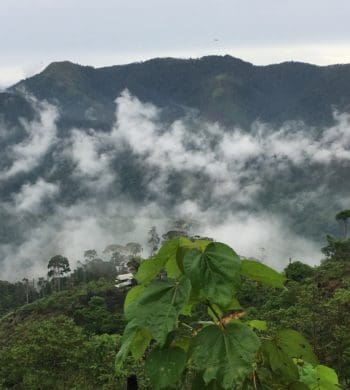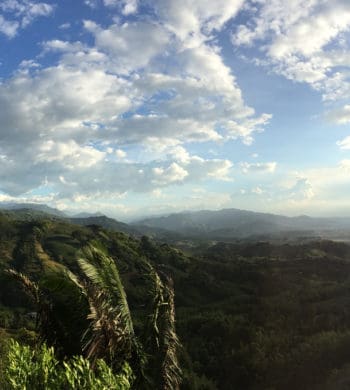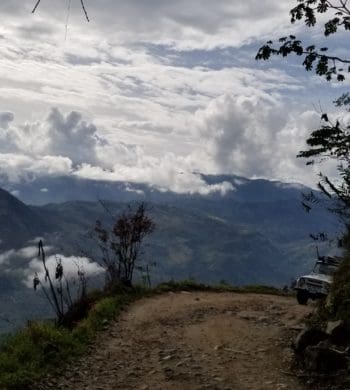Consisting of a single paved road, the community of Monserrate straddles a ridge in the beautiful Cordillera Central mountain range in the southwestern state (departament) of Huila. At the top of the road is a large, brick church that houses a shrine to the Virgen de Monserrate, a statue of a black Virgin Mary that’s become a regional tourist attraction. Most residents of Monserrate and surrounding communities are small-scale farmers who grow coffee as a cash crop.
As the contractor for the five-year, USAID-funded Colombian Specialty Coffee Program, ACDI/ VOCA introduced Atlas to the farmers of Monserrate in 2005. Craig Holt, Atlas’ founder, initially traveled to Monserrate as an ACDI/VOCA volunteer and worked with the growers to assess the quality of their coffees, review their harvesting & processing techniques, and offer suggestions on how to position themselves in the specialty coffee market.
Impressed with the possibility for truly exceptional coffee production in the community, Craig returned the following year with several roaster clients and solidified a commercial relationship. He also had face-to-face meetings with the growers and the exporter to set the price, which has ensured that all parties are comfortable with the transaction. Today, Atlas continues to purchase Monserrate’s coffee at a high premium over the internal price for conventional coffee, and promotes the majority of their production under the community’s name.
While the blended coffee from Monserrate has always been fantastic, it didn’t take long for us to realize that certain producers were taking a little more care with their farming and processing practices than others. In 2008, Atlas facilitated the first “Lo Mejor de Monserrate” microlot competition, in order to give farmers the opportunity to have their lots cupped and scored independent of the rest of the group. Once Monserrate producers realized that coffee buyers would pay even higher premiums for top quality lots traceable to an individual farm, the friendly competition took off. Those first farmers that built relationships with roasters served as models of success for the rest of the community, and each year brings higher quality coffees, freshly motivated farmers and an opportunity for roasters and producers to connect in a uniquely personal way.



